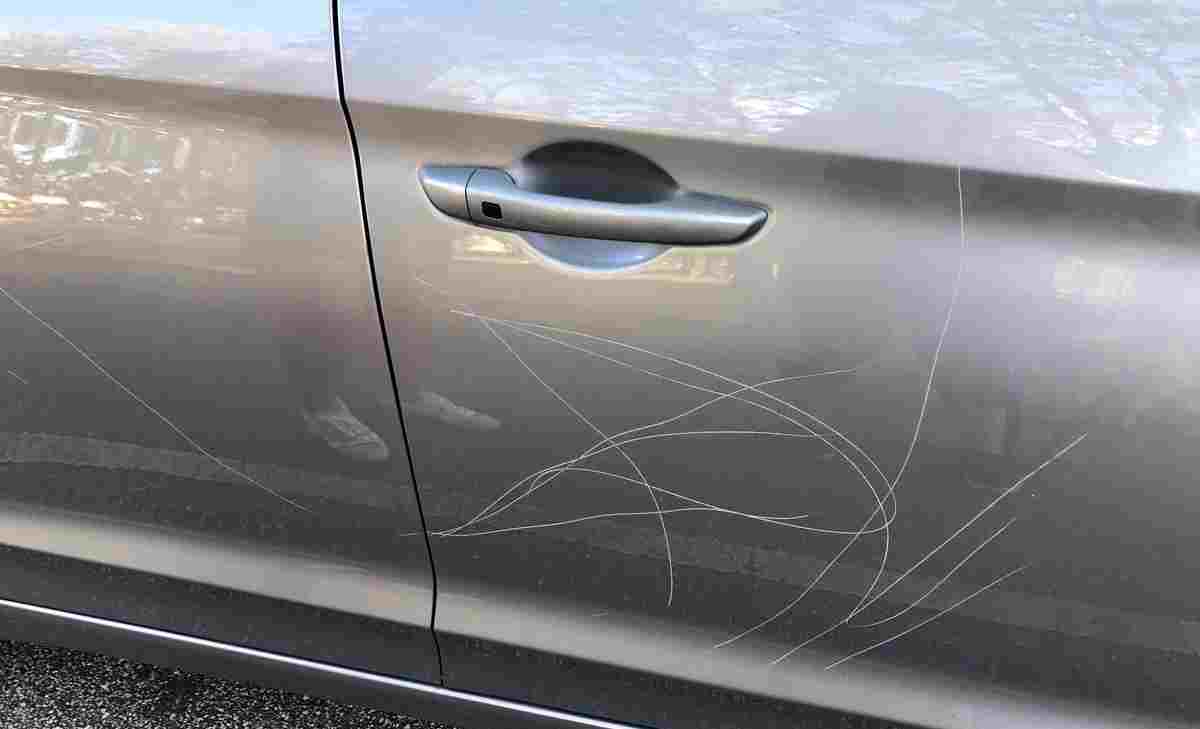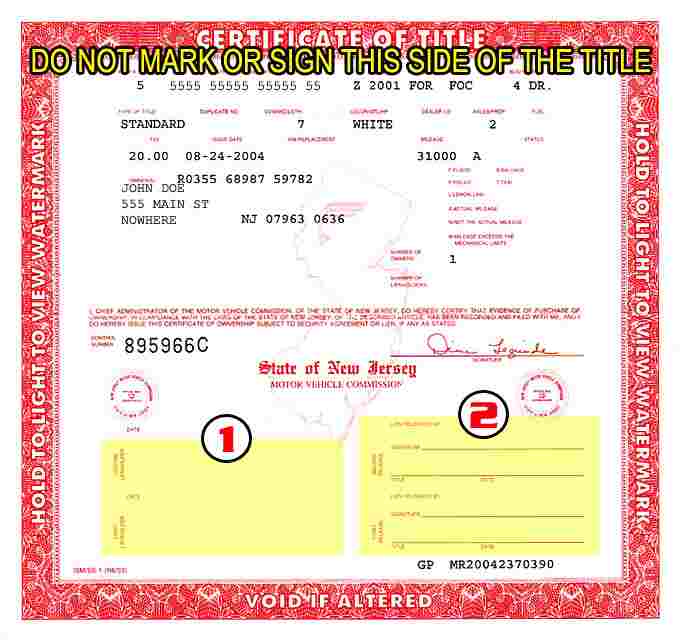Finding out that someone keyed your car can be a frustrating and upsetting experience. And the worst part of the experience is that it is almost impossible to prove someone keyed your car. However, it is important to take steps to identify the person who acted and hold them accountable for their actions. In this guide, I will show you some ways to prove someone keyed your car.
To prove that someone keyed your car, you can take several measures, such as looking for eyewitnesses, checking for security cameras, documenting the damage, reporting the incident to the police, and contacting your insurance company. By following these steps, you can increase your chances of identifying the culprit and getting the necessary repairs covered.
Car keying is considered vandalism, and a suspect can be fined for this act. However, a vandal will not key your car when there are onlookers. It can be a nightly act perpetrated typically when your car is parked in a deserted place.
Meanwhile, car keying can be an act of aggressive revenge, a regrettable mistake, or what the vandal might consider to be “fun”. Also, if you park your car during a protest, it could be keyed by an angry protester you owe nothing.

Car keying: What does it mean?
Car keying is the act of using the end of a key to creating a dent or scratch a car. It is typically an intentional act of vandalism out of vengeance, spite, or randomly done by a passerby.
Whether intentional or not, keying inflicts damage on another person’s car and is a finable offence. Thus, if your vehicle suffers keying, you can file a police report. It also indicates that a crime occurred.
Unfortunately, the police may not give your complaint the priority you think its needs. Even finding a stolen car is not given 100% of the attention, not to mention the keying offence. The police will help if you know the suspect and can prove that they committed the crime.
You cannot speculate. Do not say your bitter ex, a neighbour, or a fellow you exchanged words with at a bar keyed your car without proof. You need to prove beyond a reasonable doubt who keyed the car to be guaranteed justice.
Read also: How NJ handles transferring a car to family members
How to prove someone keyed your car
Since proving the suspect responsible for your keyed car will ensure justice, this section touches on the steps to follow:
-
Look for eyewitnesses
Ask people in the area at the time if they saw anything suspicious or noticed anyone near your car. If they noticed anyone, that should be a good start to your investigation.
-
Check for security cameras.
If your car was parked near a business or in a public area, there may be security cameras that captured footage of the incident. Contact the owners of nearby businesses and ask if they have any video footage that could help.
You need evidence but do not confront the suspect. But if you must ask why they did so, have a camera on to record the conversation.
The act may have been captured on someone’s home security camera if you reside in a city. If you parked your car near a business, politely request the store’s camera.
Take photographs of the dents, and document all pieces of evidence for filing a police report. A witness may also be helpful, but without evidence, the witness’ claim cannot go as far as nailing the vandal.
-
Document the damage:
Take photos of the damage to your car and make a note of any other details, such as the location and time of the incident.
-
Inform the police
If you catch a vandal keying your car, call your local police department’s non-emergency number. you need sufficient evidence to involve the police. Otherwise, it will be your word against theirs, and your words may be considered speculations as long as the vandal does not admit the crime.
A dispatch may help file a report that will hopefully lead to charging the vandal who keyed your car. The step is similar to reporting a stolen car. You also need a police report to file an auto insurance claim.
-
Notify your insurance company.
After filing a police report, notify your insurance company. Vehicle vandalism can be covered by comprehensive insurance. There might be a deductible, so if the scratch is not so bad, try buffing it yourself.
Call and submit your evidence, including photographs and the police report to your insurance agent. The agent may send the proof to an insurance adjuster or appraiser, who may contact you to contact a body repair shop for a preliminary damage estimate.
The agent may then help you to determine if it is worth filing a claim. Again, consider your deductible amount, which you pay out of your pocket before your insurance company can cover the damage to your car.
It may not be reasonable to file a claim if your deductible is lower than the final repair amount.
-
Get a lawyer
An experienced personal injury attorney will ensure you have the finest comprehensive representation.
Get an experienced lawyer to help you with a no-fault car accident and get a fair settlement amount.
-
Sue the vandal
With evidence, you can file a complaint in civil court. Here, evidence standards are lower than in a criminal court. But you cannot convince a judge to rule in your favour without evidence.
-
Cope with the damage.
If the keyed damage is not hard on the paint, quickly repair it yourself. Wash the keyed portion of your vehicle and rob it with shoe polish when it dries. Use sandpaper, dip it in a water and dish detergent solution, and gently sand the keyed area.
Apply a rubbing compound on the damaged part and buff the scratch with your hand. Finally, use a microfiber cloth and car wax to polish the area.
Do the police investigate keyed cars?

The police are helpful at best, but regarding a keyed car, the answer is not what you want to hear – the police do not give all the attention to your keyed car unless you have evidence and can identify the suspect.
When you call the police about your vandalized car, they will show up and look it over. They will photograph the car and ask your neighbours if they saw anything. This small act may already take 20 minutes, and the officer may investigate further if there are good clues.
They will look into what has been found by you, the neighbours, or themselves. Or even what the camera captured, check their records for similar cases in that area.
But in most cases, all you may do is tell the officer that you parked your car here at 5 pm after returning from work, and then noticed a scratch the following morning.
Your neighbours also saw nothing, but one might remember hearing a dog barking at 3:30 am. With this report, the police officer has nowhere to start the investigation. And all the police officer will do is to write you a couple of paragraphs about the incident to send to your insurance company along with your claim.
This sounds boring and disappointing and boring, but there is nothing the officer can do about it. But if with evidence, they can pursue the case.
Read also: No gas, no money, no problem!
Final thoughts
Without evidence, you do not always get the ruling you expect. Thus, you may have to take the losses and move on.
If you retaliate, it may feel calm during the first few minutes, especially if you know about the vandal. Nonetheless, you might be the party who gets caught in the end, and the court may not accept that the vandal did it first, even with your proof.



Very helpful article, Bernard!
This article will help people who meet this problem to pursue the vandal to the very end and ensure justice is served.
Thanks for sharing!
And, car keying is an interesting topic. How about writing about fixing a car keying scratch guide?
I think there are a lot of people wanna find out about it.